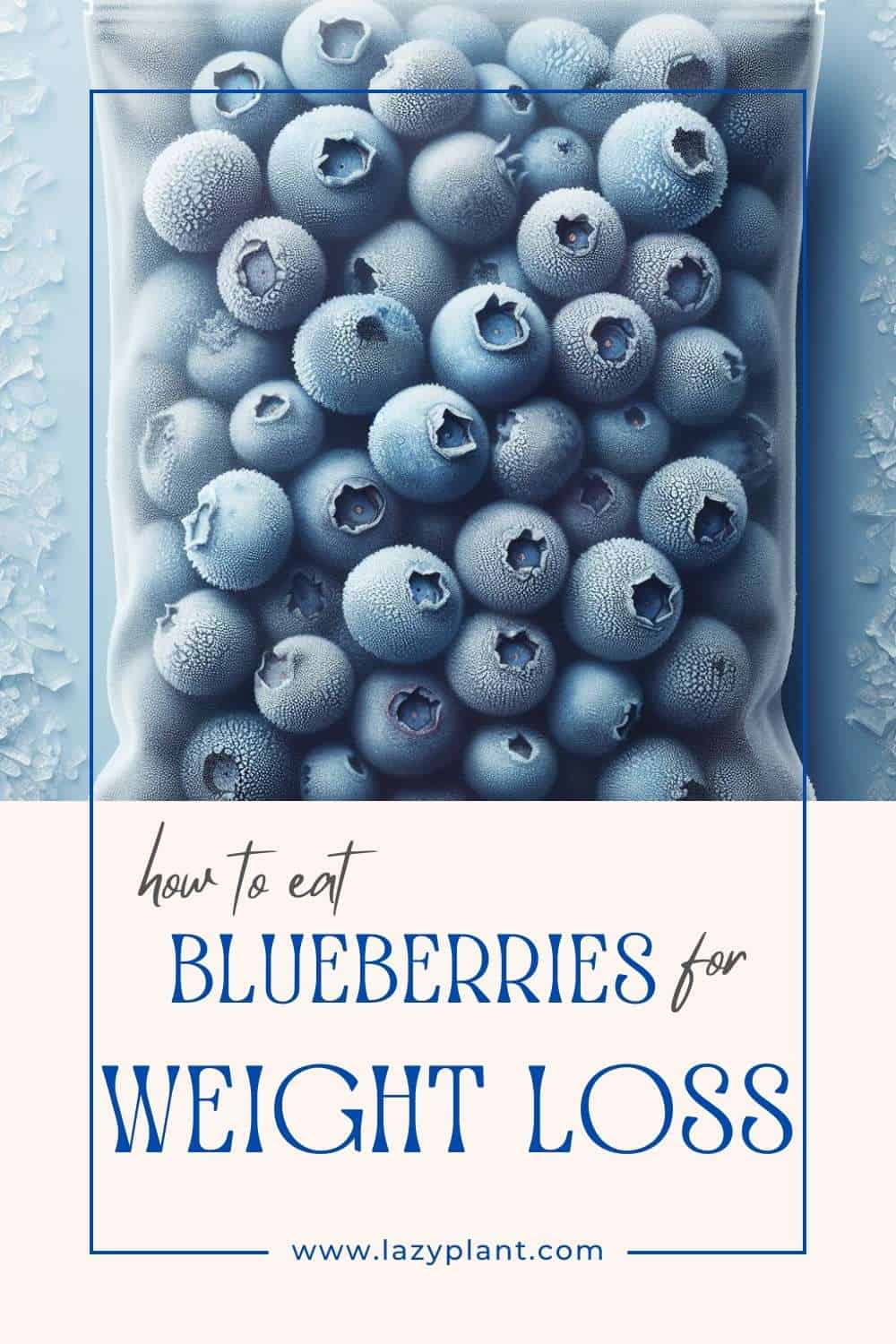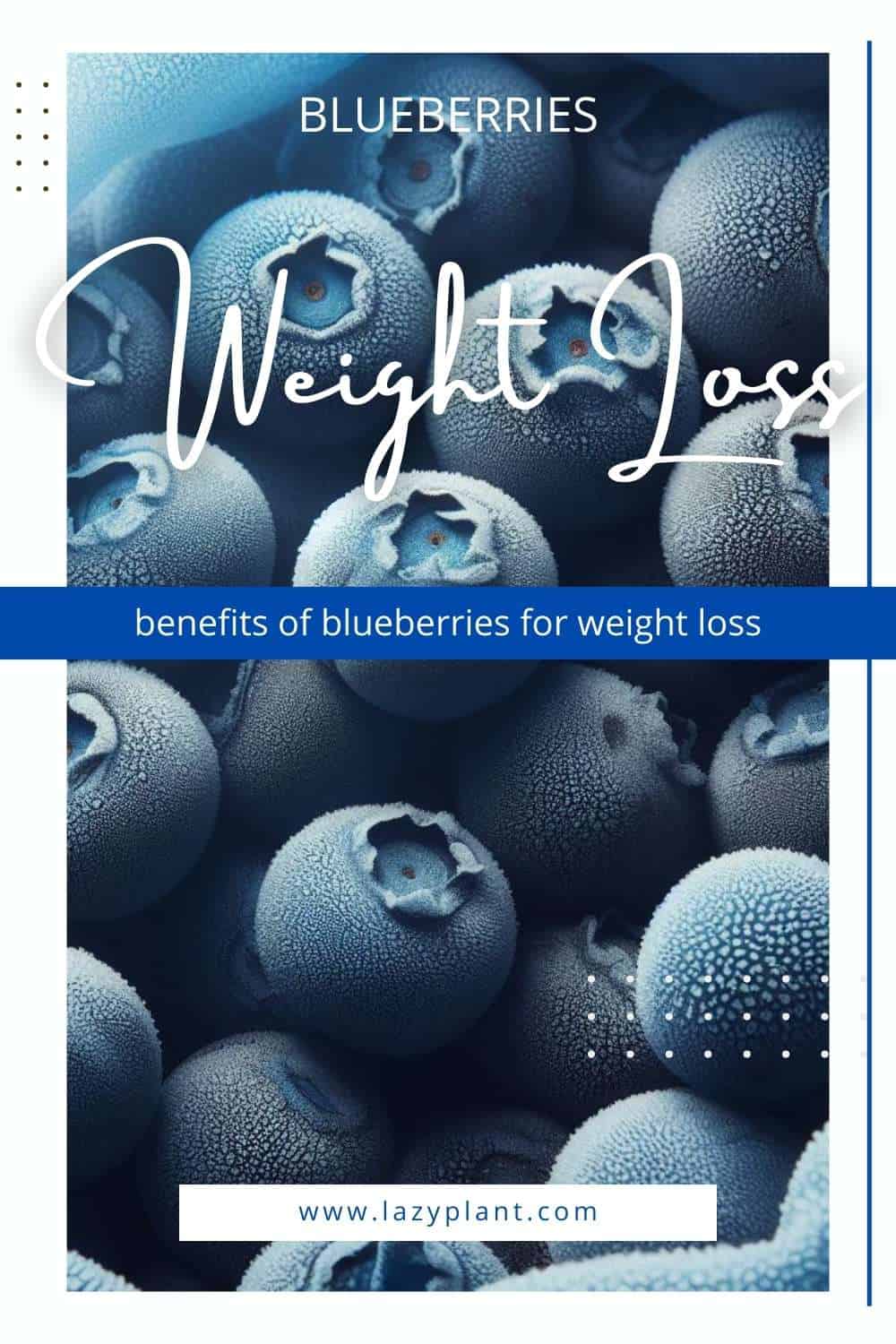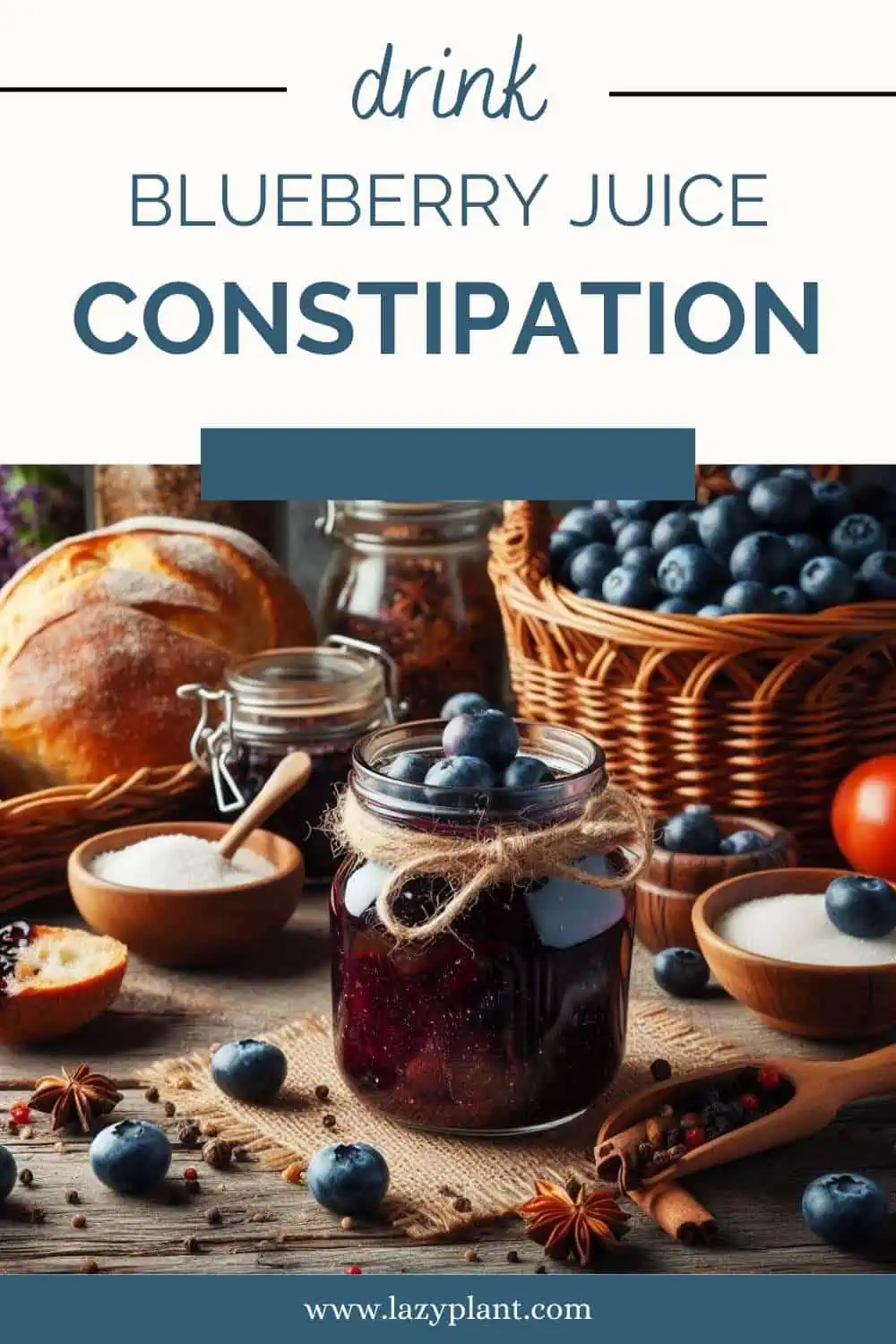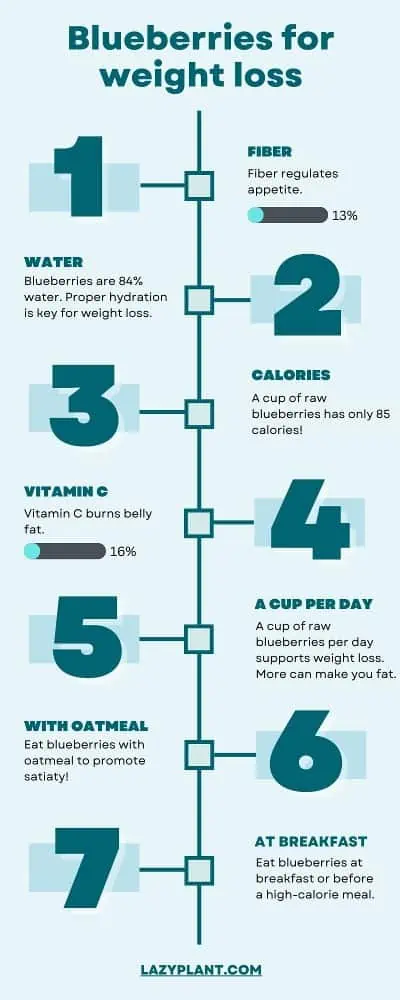Blueberries support weight loss as they have only 86 calories per cup. Vitamin C burns belly fat while fiber reduces hunger. The best way to eat them is with oatmeal, as the combination of beta-glucan and anthocyanins controls appetite for hours! With so many healthy protein-packed snack ideas, your diet journey becomes such an easy task.
However, only raw blueberries are good for weight loss. You should be very cautious with other favorite blueberry products.
Blueberries in the Mediterranean Diet
Incorporating blueberries into the Mediterranean diet for weight loss and overall health can be beneficial, but the form in which you consume them matters. Fresh and frozen blueberries are the best choices, as they retain most of their nutrients, including antioxidants, vitamins, and fiber.
Dried blueberries and products like syrup, juice, and jam often contain added sugars, which can counteract weight loss efforts and diminish the health benefits of blueberries. If you consume dried or processed blueberries, it’s important to choose versions without added sugar and limit the portion size.
Ancient Romans, Greeks, and Egyptians likely didn’t consume blueberries, as these berries are native to North America and weren’t widely available in the Mediterranean region historically.
However, they did have access to other local berries, such as blackberries, strawberries, mulberries, and elderberries. These berries have been locally grown and consumed for centuries, offering similar health benefits. These ancient civilizations often used berries in their diet for their natural sweetness, medicinal properties, and to enhance various dishes.
Nutritional Value
Calories
Raw blueberries have only 57 calories per 100g while sweetened frozen blueberries have 85 calories per 100g. They have almost 50% more calories, due to added sugar.
Dried blueberries have 5 times more calories than raw blueberries, though, with 317 calories per 100g.
A small handful of 10 raw blueberries has about 8 calories while a big handful of 20 blueberries has about 16 calories.
A cup contains approximately 86 calories. Two cups of raw blueberries have about 170 calories.
Blueberry Juice
Unsweetened blueberry juice has only 37 calories per 100 mL. 8 fl oz glass of blueberry juice has about 92 calories.
Actually, blueberry juice is among the lowest fruit juices in calories! For instance, a glass of orange juice has 22% more calories than blueberry juice.
Other Blueberry Products
Other blueberry products, such as syrups, jams, pies, muffins, and blueberry yogurts, can make you gain weight, as they have more calories than fresh blueberries, as they usually contain added sugar. For instance, blueberry syrup has approximately 88 calories, blueberry pie has 245 calories, and blueberry muffin has 255 calories per 100g!
Sugar
Raw blueberries contain only 10 grams of sugar per 100g. Wild blueberries have even less. Frozen sweetened blueberries may contain twice the amount of sugar naturally present in raw blueberries!
An 8 fl oz glass of blueberry juice naturally contains only 16 grams of sugar.
| Sugars (grams per 100g) | |
|---|---|
| dried blueberries | 68 |
| blueberry muffin | 27 |
| blueberry syrup | 21 |
| frozen, sweetened blueberries | 20 |
| raw blueberries | 10 |
| wild blueberries | 7 |
| blueberry juice | 7 |
Added sugar hasn’t any nutritional value, as it contains no vitamins, minerals, fiber, or antioxidants. Consuming high amounts of added sugar may lead to decreased insulin sensitivity, nonalcoholic fatty liver disease, inflammations, and increased uric acid levels.[1,2]

Keep glucose levels in check for a lean body!
Raw blueberries don’t spike blood sugar levels, as they have a relatively low sugar content, while they’re high in fiber and antioxidants, like anthocyanins, which control glucose levels.
In fact, raw blueberries have a very low Glycemic Load of 4. Foods with a Glycemic Low lower than 10 don’t spike blood sugar and they’re excellent food options for any diet routine for weight loss.[3]
Fiber
Moreover, blueberries are good for weight loss because they reduce appetite and cravings for fattening foods due to their high fiber content.[4]
In fact, blueberries are among the richest fruits in fiber. Raw blueberries contain 2.4 grams of fiber per 100g while a cup contains 3.5 grams of fiber or about 13% of the DV.
Frozen blueberries have a similar fiber content to raw blueberries.
Wild blueberries have a slightly higher fiber content (2.6 grams/100g) than most common blueberry varieties while dried blueberries contain 7.5 grams of fiber per 100g!
Blueberries contain both soluble and insoluble fiber with 76% being insoluble fiber.[5]
Do other berries have more fiber?
Keep in mind that other common berries have a much higher fiber content than blueberries. In fact, raspberries enhance weight loss as they’re among the richest fruits in fiber!
| fiber (grams per 100g) | |
| raspberries | 6.5 |
| blackberries | 5.3 |
| cranberries | 3.6 |
| blueberries | 2.4 |
| strawberries | 2 |
Water
Moreover, eating raw blueberries is beneficial for weight loss because they’re 84% water. A well-hydrated body is necessary for weight loss. Especially, for burning belly fat.[6]
Actually, blueberries hydrate better than water because they contain electrolytes which we also have to replenish daily.[7]

In addition, blueberries contain high-quality, purified water. Fruits are natural water filters!
Eating foods high in water is particularly beneficial for people who don’t like drinking tap water.
Vitamin C
Furthermore, blueberries support a lean body due to vitamin C. Vitamin C is necessary for burning belly fat.
Blueberries have 9.7 mg of vitamin C per 100g or 16% of the Daily Value per cup!
Wild blueberries have a much higher vitamin C content. Actually, wild blueberries have 88% more vitamin C than commercially grown blueberries!
All berries are excellent dietary sources of vitamin C. In fact, other common berries contain more vitamin C than blueberries.
| vitamin C (mg per 100g) | |
|---|---|
| strawberries | 59 |
| raspberries | 26 |
| blackberries | 21 |
| cranberries | 14 |
| blueberries | 10 |
How much vitamin C is in frozen & dried blueberries?
A high percentage of vitamin C is destroyed during food processing or cooking. Vitamin C is sensitive to high or low temperatures as well as processing methods. Also, it’s degraded by light exposure. Moreover, it easily seeps into the water.[8,9]
Hence, fresh blueberries are richer in vitamin C than frozen blueberries. Actually, frozen blueberries have negligible amounts of vitamin C. They have only 1 mg of vitamin C per 100g.
On the other hand, dried blueberries have 23.8 mg of vitamin C per 100g.
Blueberry juice is a good source of vitamin C containing 6.3 mg per 100 mL. A glass provides about 17% of the DV.
Anthocyanins
Blueberries have a high antioxidant content. Ripe blueberries, in particular.
Most noteworthy, blueberries are among the richest foods in anthocyanins. Anthocyanins belong to flavonoids and account for 60% of the antioxidants in blueberries. The total anthocyanin content of most blueberry varieties is between 387 and 487 mg per 100g of fresh blueberries.[10]
In comparison, blackberries have 245 mg, grapes 120 mg, plums 116 mg, raspberries 92 mg, and strawberries only 21 mg of anthocyanins per 100g.
Anthocyanins are among the most effective antioxidants for preventing weight gain.
According to a study with 2,734 twins, scientists found that a high anthocyanin intake can lower up to 9% of the fat mass. Especially, belly fat. The results of twin studies are important because they are independent of genetic or environmental factors.[11]
Most noteworthy, anthocyanins can significantly suppress body fat accumulation.[12]
Anthocyanins interfere in the synthesis of adipocytokines in the fat tissue. Adipocytokines are molecules produced from the fat tissue. They play a key role in energy metabolism, regulation of appetite, and obesity. Leptin is an example of adipocytokines. Leptin is a key satiety hormone.[13,14]
Raw or Dried Blueberries for Weight Loss?
Only raw blueberries are good for weight loss, as they’re low in calories and sugar. Frozen blueberries are good for weight loss, only if they don’t contain added sugar. On the other hand, dried blueberries, sweetened frozen blueberries, and blueberry syrups, jams, and pies aren’t suitable for a low-calorie Mediterranean diet plan for weight loss. If you insist on consuming such products, at least, be mindful of portion sizes.
- Best for Weight Loss: Fresh, wild, and frozen blueberries are excellent for weight loss due to their low-calorie content, high fiber, and nutrient density.
- Worst for Weight Loss: Blueberry syrup, juice, and jam should generally be avoided, as they are high in sugars and calories. Dried blueberries can also be bad for you unless consumed in moderation and without added sugars.
I consume only fresh or frozen blueberries with no added sugar. It must be referred to on the package! Only on rare occasions do I consume the dried ones.
| Blueberry Product | Pros | Cons | Weight Loss Considerations |
|---|---|---|---|
| Wild Blueberries | – Higher in antioxidants – Rich in fiber, vitamins, and minerals – Nutrient-dense | – Limited availability – More expensive | – Low in calories and sugar – Ideal for weight loss |
| Frozen Blueberries | – Retain most nutrients – Convenient and long-lasting – No added sugars if unsweetened | – Slight texture change after thawing – Some varieties have added sugars | – Great option if unsweetened – Low in calories, good for weight loss |
| Dried Blueberries | – Portable and convenient – High in fiber and antioxidants | – High in sugar and calories – Often contain added sugars – Nutrient loss during drying | – Calorie-dense – Not ideal for weight loss; opt for unsweetened varieties |
| Blueberry Syrup | – Adds flavor to dishes – Some antioxidants remain | – High in added sugars – Low nutritional value – Processed and calorie- dense | – Not suitable for weight loss – High in sugar and calories |
| Blueberry Jam/Marmalade | – Sweet and flavorful – Contains some antioxidants | – High in added sugars – Low in fiber – Vitamin loss during cooking | – Not ideal for weight loss – Opt for low-sugar versions, if consumed |
| Blueberry Juice | – Hydrating – Contains some vitamins and antioxidants | – Lacks fiber – High in natural sugars – May contain added sugars | – Lacks fiber for satiety – Not ideal for weight loss due to high sugar content |
| Canned Blueberries | – Convenient and shelf-stable – Some nutrients retained | – Often contains added sugars or syrups – Vitamin loss during canning | – Avoid versions in syrup – Opt for those canned in water or natural juice |
Blueberry Jam
Yes, you can enjoy blueberry jam on the Mediterranean diet, but moderation is key due to its high sugar content. A tbsp (20 g) of blueberry jam contains approximately 10 grams of sugar and 40 calories!
Opt for a low-sugar or naturally sweetened version made with minimal additives, as this aligns more closely with the principles of the Mediterranean diet, which emphasizes whole, natural foods. Ideally, choose jams that use pectin or natural fruit juices instead of refined sugars for added sweetness.
In terms of how to incorporate blueberry jam, it can be used sparingly as a spread on whole-grain bread for breakfast or a snack, or as a topping for Mediterranean desserts like yogurt or whole-grain pancakes.
It’s best to limit portions to about 1–2 teaspoons to manage calorie and sugar intake.
The best time to enjoy it would be earlier in the day, such as at breakfast or mid-morning, as this provides energy for the day and avoids excess sugar before bed, which could impact sleep.
Homemade jam can still be fattening, as most traditional recipes use high amounts of added sugar. In fact, commercial blueberry jams with no added sugar may be a better food option for a low-calorie diet plan!
Jams in the Ancient Mediterranean Region
Ancient civilizations around the Mediterranean, such as the Greeks, Romans, and Egyptians, did consume foods that were similar to modern jams, though their methods and ingredients differed slightly from today’s jams.
They often preserved fruits using honey or grape must (a thick syrup made from grape juice), as sugar wasn’t widely available. This process created a fruit preserve that resembled jam.[15]
For example, the Romans made “defrutum” and “sapa”, thick grape syrups often mixed with fruits to create sweet spreads or sauces.
In Egypt, honey was a common preservative for fruits, and dried fruits were often rehydrated and sweetened with honey. While these weren’t exactly jams as we know them, they served a similar purpose: preserving fruit for off-season use and adding sweetness to meals.

Snack Ideas with Bluebery Jam
Blueberry jam parfait: Layer low-fat Greek yogurt with blueberry jam and top with a sprinkle of granola for added crunch.
Rice cake: Spread blueberry jam on a brown rice cake and add a thin layer of almond butter for a balanced and satisfying snack.
Blueberry jam smoothie: Blend blueberry jam with frozen berries, spinach, and a scoop of protein powder for a nutritious and filling smoothie.
Whole-grain toast: Spread blueberry jam on whole-grain toast and pair it with a source of protein like cottage cheese or nut butter.
Blueberry jam oat bites: Combine blueberry jam with rolled oats, chia seeds, and a touch of honey. Form into bite-sized balls for a wholesome snack.
You can find a wide variety of sugar-free blueberry jams on Amazon.
How to Store Raw Blueberries?
Look for firm, plump blueberries with a deep, uniform color and a silvery sheen. Avoid soft, shriveled, or moldy ones. Choose unsweetened varieties with whole, unbroken berries.
To maximize the shelf life of raw blueberries, store them unwashed in the refrigerator. Moisture can make them spoil faster, so wash them only before consuming. Keep them in a shallow container, loosely covered, to allow air circulation. If using the original container, make sure it has ventilation holes.
Fresh blueberries can last 5–10 days if stored properly. If they start to get soft or moldy, it’s time to discard them.
To freeze, spread the berries in a single layer on a baking sheet to prevent clumping. Once frozen, transfer them to an airtight bag or container. Frozen blueberries can last up to 12 months in the freezer while maintaining quality.
Tips
- To extend the freshness of raw blueberries, line the container with a paper towel to absorb moisture.
- Use frozen berries directly in smoothies or cooking without thawing for best texture.
Storing Other Forms of Blueberries
- Frozen blueberries: Once thawed, they should be used within a few days and stored in the fridge. They can be refrozen but may lose texture.
- Dried blueberries: Store in an airtight container in a cool, dark place for 6–12 months. In humid climates, refrigeration may extend their shelf life.
- Blueberry jam: Unopened jam can last up to a year in a cool, dark pantry. Once opened, it should be stored in the fridge and consumed within 2–3 months.
How Many Blueberries can I Eat?
If you want to lose weight, you could eat up to:
- 1 cup of raw blueberries. My favorite way to eat blueberries!
- 1/2 cup of frozen sweetened blueberries, as they usually have about 50% more calories than raw blueberries.
- 1 oz of dried blueberries. You should be very cautious with portion sizes of dried blueberries. They’re particularly high in calories and sugar! They have almost 6 times more calories than raw blueberries! Only athletes could eat much higher amounts and still maintain a lean physique.
- 2 tbsp of sugar-free blueberry jam. Better to avoid blueberry syrups, jams, and pies if you want to burn belly fat. These foods are packed with added sugar and calories. Only sugar-free blueberry jams are healthy! Still, more than 2 tbsp of blueberry jam a day can make you gain weight.
You could occasionally eat small portions of blubbery cakes or other blueberry sweets. But, not daily.

Can blueberries make you fat?
Certainly, we can eat 1–2 cups of raw blueberries a day as part of a healthy, well-balanced diet without gaining weight. However, much higher amounts can have detrimental effects on weight loss.
Eating more calories than you burn can make you fat. That’s why you should avoid consuming dried blueberries, blueberry jams, cookies, cakes, or pies. It’s easy to overconsume them.
Can I eat blueberries every day?
Yes, you can include blueberries in your daily diet as part of a balanced and varied eating plan. However, consuming a healthy, balanced diet rich in various vegetables and fruits is far more important for good health and maintaining a lean body year-round.
Are blueberries keto-friendly?
People who follow a ketogenic diet should consume up to 50 grams of net carbs a day. However, there are strict ketogenic diets, which further limit the carbohydrate intake to 20 grams of net carbs a day.[16]
Actually, blueberries, like all berries, are keto-friendly. People on keto can eat a 1/2 cup of raw blueberries a day. This amount contains less than 8 grams of sugar.
How many blueberries can people with diabetes eat a day?
Only fresh unsweetened blueberries are suitable for people with diabetes. Actually, the American Diabetes Association labels blueberries, as all berries, superstar foods for diabetes![17]
Blueberries have anti-diabetic properties. They contain compounds that may improve postprandial glucose management and insulin sensitivity. In fact, raw blueberries can reduce the risk of type 2 diabetes.[18,19]
As a rule of thumb, people with diabetes shouldn’t consume more than 15 grams of carbs per serving. This amount is found in 100g of raw blueberries or 2 tbsp of dried blueberries.[20]
So, people with diabetes who want to lose weight can eat a 1/2 cup of raw blueberries a day.
What’s the Best Time to eat Blueberries for Weight Loss?
The best time to eat a cup of raw blueberries for weight loss is before a calorie-dense meal or at breakfast with protein-rich foods. They help reduce the secretion of hunger hormones. So we can effortlessly follow a hypocaloric diet plant for a long time.
Moreover, we can eat raw blueberries on an empty stomach.
As a Healthy Sweet
Another great time to eat blueberries for weight loss is whenever you want to satisfy your sweet tooth. Raw blueberries are a healthy dessert that has fewer calories than most favorite sweets.
After Exercise
Also, athletes can eat raw, frozen, or even dried blueberries after exercise. Sugar in blueberries helps replenish muscle glycogen stores. The body has increased insulin sensitivity after a workout. So, the best time to eat foods high in sugar or candy is after strenuous exercise.
At Dinner
Having a large meal before bed increases the risk of obesity and may affect sleep onset latency, duration, and quality. Therefore, it’s important to eat healthy, nutrient-dense foods at night like raw unsweetened blueberries.[21]
Fiber has been associated with better sleep quality with less arousal.[22]
However, only raw blueberries support a good night’s sleep. Avoid dried or sweetened frozen blueberries, as high amounts of added sugar at night may affect sleep quality and sleep onset latency.[23]
Furthermore, anthocyanins in blueberries have neuroprotective properties. They may play a role in insomnia, anxiety, depression, or cognition, as they fight oxidative stress.[24,25]
Also, resveratrol in blueberries may ameliorate anxiety and have beneficial effects on obstructive sleep apnea.[26]
Berries, peanuts, grapes, and red wine are the only foods containing resveratrol.[27]
As blueberries fight inflammations, they could help people with muscle stress and stiffness sleep better at night. Blueberries’ anti-inflammatory properties may help alleviate conditions that disrupt sleep, such as pain.[28]
In any case, we should have dinner at least a couple of hours before bedtime. Otherwise, we have up to 5 times higher risk of gaining weight!

What’s the worst time to eat them?
On the contrary, the worst time of the day to eat dried blueberries for weight loss is right before bedtime. Sugar late at night can cause weight gain. Moreover, you shouldn’t eat blueberries right before exercise. Fiber in blueberries may cause bloating or stomach discomfort.
How to Incorporate Blueberries into the traditional Mediterranean Cuisine?
By creatively adding blueberries to traditional Mediterranean ingredients like olive oil, herbs, whole grains, yogurt, and lean proteins, you can enjoy the benefits of these nutrient-rich berries. Add a modern twist to traditional Mediterranean cuisine. Here are some ways to integrate blueberries:
Salads: Add fresh blueberries to Mediterranean-style salads, combining them with leafy greens, cucumbers, feta cheese, olives, and a drizzle of olive oil and lemon. The sweet and tart flavor of blueberries complements the savory elements of a classic Mediterranean salad.
Greek Yogurt with Blueberries: A common Mediterranean breakfast or snack includes Greek yogurt, which you can top with fresh or frozen blueberries, a drizzle of honey, and a sprinkle of nuts or seeds for added texture and nutrition. My favorite dish which I enjoy 3-4 times per week! It’s also an excellent post-workout snack.

Whole Grain Dishes: Add blueberries to whole grain dishes like bulgur, quinoa, or farro salads. Mix them with herbs like mint or parsley, a dash of olive oil, and lemon juice to enhance the traditional grain-based Mediterranean dishes.
Smoothies: Blend fresh or frozen blueberries with Greek yogurt, spinach, and a splash of almond milk for a nutrient-packed Mediterranean-inspired smoothie.
Blueberries with Olive Oil: Use blueberries as a topping for bruschetta made with whole-grain bread, spread with a bit of ricotta or goat cheese, and finished with a drizzle of olive oil for a mix of sweet and savory Mediterranean flavors.
Desserts: Blueberries can be used in Mediterranean-style desserts, such as mixing them with honey, yogurt, and a sprinkle of cinnamon. You could also fold blueberries into a simple olive oil cake or serve them as a topping for poached fruit.
Grilled Meat and Fish Toppings: Incorporate blueberries into sauces or salsas to pair with grilled fish or chicken. A blueberry and balsamic vinegar reduction can be a delicious, healthy topping for lean meats or seafood.
How to Eat Blueberries for Weight Loss?

Eating blueberries for weight loss involves incorporating them into a well-balanced and portion-controlled diet.
Blueberries add a sweet and mildly tart flavor to oatmeal and various recipes. The natural sweetness of blueberries complements the hearty and neutral taste of oatmeal, creating a delicious and balanced combination.
The berries may burst during cooking, releasing their juices and enhancing the overall fruity flavor.
In addition to sweetness, blueberries contribute a refreshing and slightly tangy element, elevating the taste profile of oatmeal and other dishes.
With Oatmeal
Abpve all, you can sprinkle blueberries on top of your oatmeal for an easy and super healthy breakfast. The combination of fiber and antioxidants can enhance the nutritional profile of your meal.
Eating foods high in anthocyanins (blueberries) with foods high in beta-glucan (oats) has a huge effect on satiety.
According to a study, 30 obese individuals reduced the desire to overeat after 4 weeks of eating blueberries with oatmeal![29]
Not only does oatmeal is one of the richest foods in beta-glucan but also it supports weight loss because it’s packed with vitamins and minerals.
Also, you could eat blueberries with overnight oats and protein-rich Greek yogurt. It’s one of the most filling, healthy, nutrient-dense foods you can eat.
Modern Mediterranean Dishes
By using blueberries in these creative, Mediterranean-inspired dishes, you can enjoy the best of both worlds: the health benefits of blueberries and the time-tested flavors of the Mediterranean diet. Here are some Mediterranean-inspired recipes using blueberries in various forms:
Blueberry Tabbouleh Salad
Ingredients:
- 1 cup cooked bulgur or quinoa
- 1/2 cup fresh blueberries (raw or frozen)
- 1/4 cup chopped parsley
- 1/4 cup chopped mint
- 1 small cucumber, diced
- 1/4 cup olive oil
- Juice of 1 lemon
- Salt and pepper to taste
Instructions:
- In a large bowl, mix cooked bulgur or quinoa with chopped herbs, cucumber, and blueberries.
- Drizzle with olive oil and lemon juice, then season with salt and pepper.
- Toss gently and serve chilled or at room temperature.
Greek Yogurt with Honey, Blueberries, and Walnuts
Ingredients:
- 1 cup Greek yogurt
- 1/2 cup fresh or frozen blueberries
- 1 tablespoon honey
- 2 tablespoons walnuts, chopped
- Cinnamon (optional)
Instructions:
- Place the Greek yogurt in a bowl and top with blueberries.
- Drizzle with honey and sprinkle with walnuts.
- Add a pinch of cinnamon for extra flavor, and enjoy it as a breakfast or snack.
Blueberry Cake
Ingredients:
- 1 1/2 cups all-purpose flour
- 1/2 cup olive oil
- 1/2 cup sugar
- 2 large eggs
- 1/2 cup fresh or frozen blueberries
- 1/2 teaspoon baking powder
- 1/2 teaspoon baking soda
- Zest of 1 lemon
- Pinch of salt
Instructions:
- Preheat the oven to 350°F (175°C).
- In a bowl, whisk the olive oil and sugar until well combined. Add the eggs one at a time and mix.
- In another bowl, sift the flour, baking powder, baking soda, and salt.
- Gradually add the dry ingredients to the wet mixture, mixing until combined.
- Fold in the blueberries and lemon zest.
- Pour the batter into a greased cake pan and bake for 30-35 minutes or until golden brown.
- Let cool and serve with a dusting of powdered sugar.
Blueberry Balsamic Chicken
Ingredients:
- 2 boneless, skinless chicken breasts
- 1/2 cup fresh or frozen blueberries
- 2 tablespoons balsamic vinegar
- 1 tablespoon honey
- 1 tablespoon olive oil
- Salt and pepper to taste
Instructions:
- Season the chicken breasts with salt and pepper, then sear in olive oil over medium heat until cooked through.
- In a separate saucepan, heat balsamic vinegar and honey over low heat until it thickens.
- Add the blueberries and cook until they release their juices and form a sauce.
- Pour the blueberry balsamic sauce over the cooked chicken and serve with a side of roasted vegetables or a grain like farro.
Blueberry Tahini Spread
Ingredients:
- 1/2 cup fresh or dried blueberries
- 2 tablespoons tahini
- 1 tablespoon honey or maple syrup
- 1 tablespoon lemon juice
- Water (as needed for consistency)
Instructions:
- Blend blueberries, tahini, honey, and lemon juice in a blender or food processor until smooth.
- Add water, one tablespoon at a time, until the desired consistency is reached.
- Use as a spread on whole grain bread or as a dip for vegetables and crackers.
With protein-rich foods
Combining blueberries with foods high in protein promotes satiety. The meals high in both protein and fiber are the most filling ones. Here are some protein-packed snack ideas with blueberries:
Blueberry yogurt parfait: Layer Greek yogurt with fresh blueberries. Add a sprinkle of granola or nuts for crunch and extra protein.
Blueberry cottage cheese bowl: Mix fresh blueberries into a bowl of cottage cheese. Drizzle with honey and top with sliced almonds for added protein.
Blueberry protein smoothie: Blend blueberries with protein powder, Greek yogurt, and a splash of almond milk. Optionally, add a spoonful of nut butter for extra creaminess and protein.
Blueberry quinoa salad: Mix cooked quinoa with fresh blueberries, feta cheese, and chopped nuts. Drizzle with a light vinaigrette for a protein-packed salad.

Vegan protein-rich snack Ideas
Blueberry chia pudding: Combine blueberries with chia seeds and almond milk. Allow it to sit in the refrigerator until it thickens into a pudding-like consistency. Chia seeds support wieght loss, as they’re among the few plant-based sources of complete protein as well as omega-3s!
Blueberry nut butter toast: Spread almond or peanut butter on whole-grain toast. Top with fresh blueberries for a tasty and protein-rich snack.
Blueberry protein balls: Make no-bake protein balls using blueberries, oats, vegan protein powder, and nut butter. Roll into bite-sized balls and refrigerate until firm.
Blueberry protein muffins: Bake homemade muffins using vegan protein powder, almond flour, and blueberries. Enjoy as a satisfying and portable protein snack.
Blueberry edamame salad: Combine steamed and cooled edamame with fresh blueberries. Toss with a light dressing and sprinkle with sesame seeds.
Other ways to eat blueberries
Toss blueberries into salads for a burst of sweetness and added nutrition. They pair well with leafy greens, nuts, and a light vinaigrette.
Furthermore, you could incorporate dried blueberries into a homemade trail mix with nuts and seeds. It provides a satisfying blend of textures and flavors.
Also, you could make a simple blueberry sauce using fresh or frozen berries. Use it as a topping for pancakes, waffles, or toast.
Are other Berries better for Weight Loss?
While all berries can be part of a healthy diet, there isn’t strong evidence to suggest that one type of berry is significantly better for weight loss than another.

Each type of berry offers unique nutritional benefits. It’s essential to consider the overall quality of your diet, including a variety of fruits and vegetables, lean proteins, whole grains, and healthy fats.
A well-balanced diet, combined with regular physical activity, is key to achieving and maintaining a healthy weight.
Other Health Benefits of Blueberries
Furthermore, blueberry intake seems to increase HDL cholesterol and decrease LDL cholesterol and triglycerides.
Also, blueberries may reduce both systolic and diastolic blood pressure, and reduce arterial stiffness!
Moreover, it seems that blueberries, mainly due to their high anthocyanin content, benefit cardiovascular health. Anthocyanins have antioxidant and anti-inflammatory effects.
According to many studies, blueberries may prevent metabolic syndrome and obesity, support sleep, and reduce inflammation!
You can take advantage of these health benefits of blueberry year-round with organic blueberry extracts or powders. You can find a wide variety of them on iHerb.
Role of Constipation
While constipation itself doesn’t directly cause weight gain or obesity, it can create a temporary sense of bloating, discomfort, and feeling “heavier.” It can also result in sluggish digestion and metabolism, which may make it more difficult to lose weight.
Moreover, chronic constipation may lead to poor food choices, as people might avoid high-fiber foods due to bloating or discomfort, potentially contributing to unhealthy eating patterns and weight gain over time.
However, the weight gained during constipation is often due to excess waste retained in the digestive tract, not an actual increase in body fat.
Is Constipation Common in the Mediterranean Diet?
Constipation is less common in the Mediterranean diet compared to typical Western diets mainly due to its high fiber content. However, if the Mediterranean diet lacks sufficient hydration or fiber (e.g., not consuming enough whole grains or fruits), constipation could still be a concern.

Can Blueberry Products Help with Constipation?
Yes, blueberry products can help alleviate constipation due to their high fiber content and hydration properties.
They are a good source of both soluble and insoluble fiber, which aids in bowel movement regulation and prevents constipation. Insoluble fiber adds bulk to stool and speeds up its passage through the intestines, while soluble fiber helps absorb water, softening stool and making it easier to pass.
Dried blueberries are more concentrated in fiber, but they should be consumed with plenty of water to avoid dehydration, which can worsen constipation.
Blueberry juice might not have the same fiber content as whole berries, but it can contribute to hydration, which is important for preventing constipation.
On the contrary, blueberry jam often contains sugar and less fiber, so it may not be as helpful for relieving constipation, though some fiber is still present.
You can find a wide variety of blueberry powders and extracts on iHerb.
Who should Avoid Eating Raw Blueberries?
While blueberries are generally considered safe and nutritious for most people, certain individuals may need to be cautious or avoid eating raw blueberries.
Individuals with allergies to berries or related fruits may experience allergic reactions to blueberries. Common symptoms include itching, swelling, hives, or difficulty breathing.
Some people may have gastrointestinal sensitivity to certain compounds in raw blueberries, leading to digestive issues like bloating, gas, or stomach discomfort. If you have a sensitive stomach avoid consuming blueberries or other fruits on an empty stomach.
People taking certain medications should also be cautious with blueberries. For instance, individuals with kidney problems may need to limit their intake of certain fruits, including blueberries, due to their potassium content.
Always consult with a healthcare professional or a registered dietitian for personalized advice.
